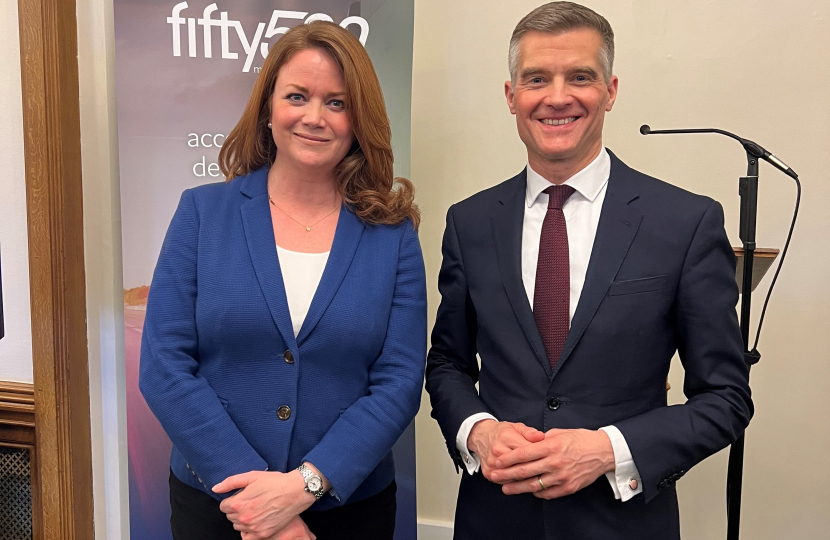
- The Government is sticking with the plan to reallocate £36 billion of HS2 funding into long-term local transport improvements – benefitting more people, in more places, more quickly.
- The £4.7 billion Local Transport Fund is the latest part of this plan being delivered. £285,903,000 is being provided to Staffordshire to improve local transport, helping people across Burton and Uttoxeter benefit from the transport improvements that matter most to local people.
- The Government is sticking to its long-term plan to transform how people travel – improving public transport, reducing congestion and upgrading local bus and train stations to help create jobs, grow the economy and level up our communities.
Kate Kniveton MP has welcomed £285,903,000 for Staffordshire as part of the Government’s long-term plan to level up local transport in Burton and Uttoxeter.
Millions of people in the North and Midlands are set to benefit from £4.7 billion of further investment in local transport made possible by reallocated HS2 funding, with money to improve public transport, reduce congestion and upgrade local train stations. In Burton and Uttoxeter, commitments have been made to see the delivery of the A50/A500 corridor upgrades, which Ms Kniveton has been leading the calls for, as well as the reopening of the Ivanhoe Line to paying passengers.
It is the first transport budget of its kind that is specifically targeted at smaller cities, towns and rural areas and empowers local people and local leaders to invest in the local transport projects that matter most to their communities.
Staffordshire will receive £285,903,000 to improve the local transport connections that people rely on every day, providing almost 11 million people across the region with almost nine times more transport funding.
Local authorities will receive funding from April 2025, giving them time to develop their funding proposals and prepare to hit the ground running to start delivering them as early as possible. Over the seven years as a whole this funding will be on average at least nine times more than these local authorities currently receive through the local integrated transport block which is the current mechanism for funding local transport improvements in their areas.
The announcement comes as part of the Government’s long-term plan to reallocate the £36 billion saved from HS2 Phase 2 into local transport improvements across the country – benefitting more people, in more places, more quickly than the full HS2 project would have done.
The Government is delivering this unprecedented funding uplift across the North and Midlands as it sticks to its long-term plan to create jobs, grow the economy and level up the country, building a brighter future for all.
Commenting, Kate Kniveton MP said:
“People rely on local transport connections every day, and it is essential that we get the investment we need to keep us moving. By redirecting money that would have been spent on HS2, we are already seeing more investment in local transport in Burton and Uttoxeter, including the commitment to deliver the A50/A500 project, reopen the Ivanhoe Line as well as more money to fill potholes.
This additional funding will make a such difference to our local transport infrastructure which is why I have led the campaign since my election for the A50/A500 upgrades for improved reliability, safety and air quality locally.
“Working with the Government, we are delivering on that and levelling up Burton and Uttoxeter. By transforming how people travel, as part of our long-term plan to invest in the things that matter most to local people, we are building a brighter future for everyone.
Commenting, Transport Secretary Mark Harper said:
“Today’s £4.7 billion investment is truly game-changing for the smaller cities, towns, and rural communities across the North and the Midlands and is only possible because this Government has a plan to improve local transport and is willing to take tough decisions like reallocating funding from the second phase of HS2.
“This funding boost will make a real difference to millions of people, empowering local authorities to drive economic growth, transform communities, and improve the daily transport connections that people rely on for years to come.”